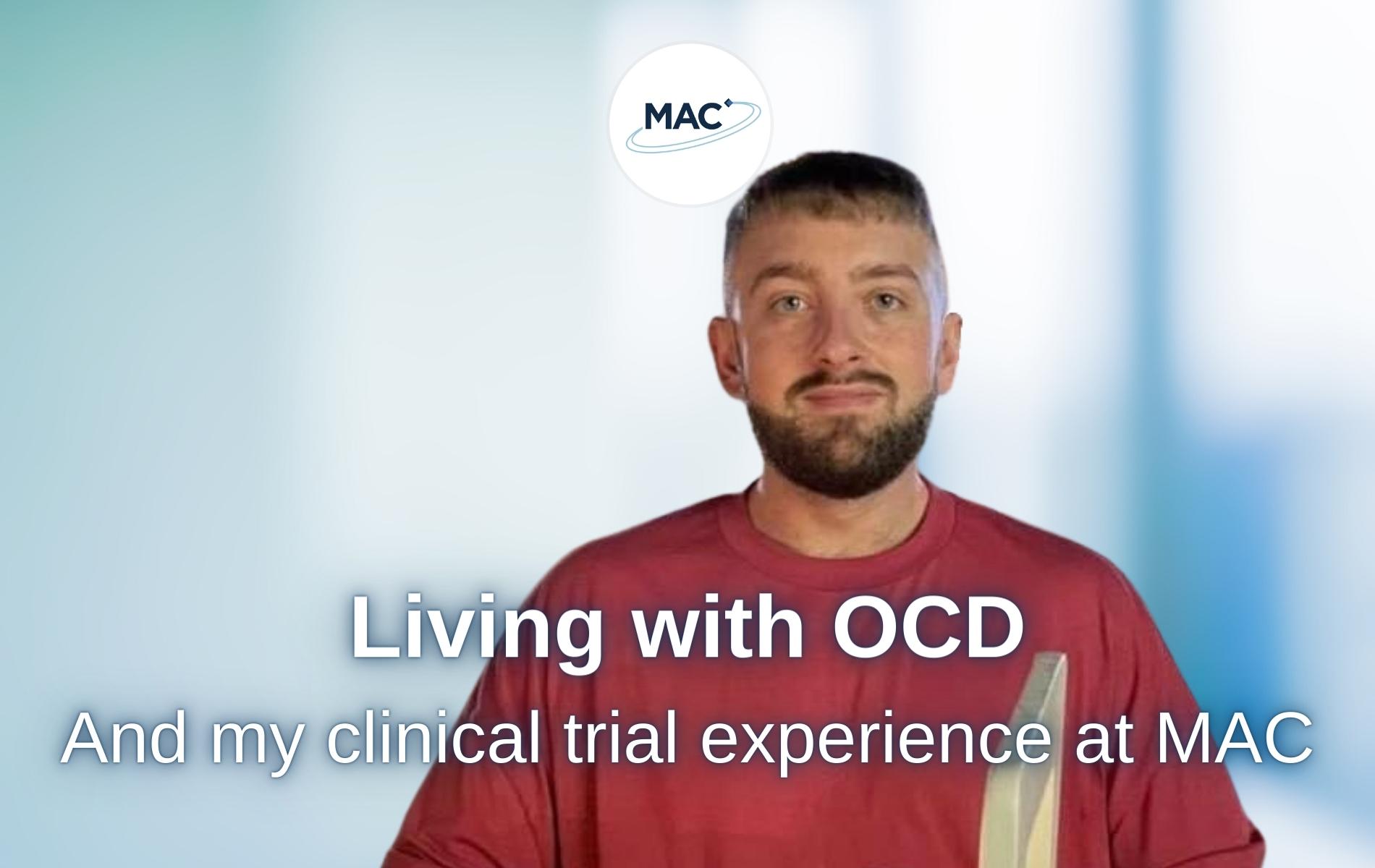Jonathan has been living with Obsessive Compulsive Disorder (OCD) for 12 years and recently took part in a clinical trial at MAC Clinical Research.
OCD is a mental health condition where someone has obsessive thoughts which can cause compulsions. It can have a severe impact on a person’s quality of life and subsequent negative effects on their social and work life. Jonathan lives with obsessions due to his OCD, he said: “The main challenge with OCD is not letting your obsessions get the better of you. The more you try to ignore your thoughts – the more they tend to stick around.”
For Jonathan, he describes his condition as ‘crippling’: “It’s there constantly and doesn’t give up. It will beat you down and down and down. People with OCD are keeping quiet because they don’t want to be thought of in a certain way.
“They also don’t want to burden anybody by going on and on about the same thing, However, this is because what’s going on in their own head 24/7 is the same thing on torturing repeat. Its mentally and physically exhausting.”
There are current treatment options for OCD: psychological therapy, such as cognitive behavioural therapy, and medicines. Having tried many different treatments for his OCD, Jonathan hoped MAC Clinical Research’s trial would be a “glimmer of light in a very dark place”. He said: “I was only nervous that I wouldn’t get on the trial. You have to understand that I was truly desperate to find something that actually worked.
“The fact that you are physically taking [the study drug] that targets a previously untouched pathway in the brain that had massive links to OCD and anxiety was so exciting and made me so hopeful.”
When visiting our clinic in Blackpool, Jonathan said he felt seen by the MAC staff. He said: “All of the staff there are so engaging, kind and welcoming. They have helped me so much right from the very start. They could see how bad the OCD had got for me and I could see that they truly wanted to help. I am forever grateful to them.”
By taking part in the trial, Jonathan has found a new hope for the future of OCD treatments, stating: “Mental health treatments really need to be focused on and OCD in particular is so debilitating. I can’t put into words just how much individuals need relief from the constant nagging obsessions when OCD takes hold.”
MAC Clinical Research is still looking for participants to take part in the latest OCD clinical trial, investigating the study drug that is thought to target a different signalling pathway in the brain to current OCD treatments, which may help to control obsessive or compulsive behaviours.
With your participation, you may be able to contribute to scientific research which may lead to a new medicine to help people living with OCD.
The study is running at MAC clinics in Lancashire, Manchester, Merseyside, South Staffordshire, South Yorkshire, Teesside, and West Yorkshire.
You must: be between 18 and 65 years-old; have had OCD, or OCD symptoms for at least 1 year; and feel that your current medication is not fully working. Eligible participants will receive up to £490 for their time and commitment to the study, along with reasonable travel costs.
For more information on how you can get involved, visit our OCD Research page.






